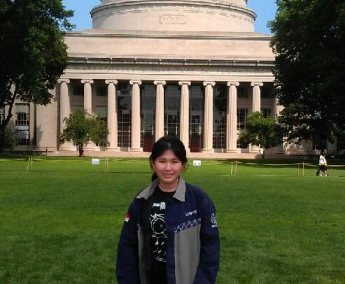Leonika B. Founder of Reblood
- techinasia.com
- Jun 26, 2015
- 3 min read
Women are underrepresented in Indonesia’s IT space for various reasons. There’s a prevailing stereotype that IT jobs are a more suitable for men. However, some female tech pioneers are coming forward these days. In this series, Tech in Asia talks to young women who have decided to make coding a career.

Leonika Sari Njoto Boedioetomo, founder of Reblood
Leonika Sari Njoto Boedioetomo is a developer and the founder of Reblood, an app that encourages people to donate blood. Her startup is currently part of the Start Surabaya incubation program. She’s also active in the FemaleDev community in Indonesia, a program that connects Indonesian women who work in IT.
At the same time, Boedioetomo is still in university, majoring in information systems at the Institute of Technology Sepuluh Nopember (ITS) in Surabaya. Last year, she was one of 47 students chosen to participate in an entrepreneurship bootcamp program at MIT – selected from more than 50,000 applicants.
TIA: How did you first get into programming?
Boedioetomo: It was during my first semester at university. I chose information systems as my major, which needs serious programming skills. But my skills were awful back then. In my first semester I got a C for the introductory course.
But there is something interesting about programming. It’s like solving a puzzle. It sparks a curiosity that makes you stay awake at night to make the code run well. That’s why I studied day and night, looking at the same black and white screen, typing every character to make sure there were no errors.
Thankfully, I then got an A in the more advanced course during my second semester.
What was the path that led you to create Reblood?
In 2013, I joined Redblood Indonesia in order to solve e-health problems, specifically blood donation, using the power of IT. We were developing a blood supply chain system for hospitals and blood banks. Unfortunately, the project is now in hibernation, due to incompatibility with the current blood supply chain system. Besides, the real problem in blood distribution is that there are not enough donations.
The project was then reborn as “Reblood,” the idea I brought back home after getting invited by MIT. The team has been developing the application since October last year, and we launched on May 24 this year.
Reblood encourages the user to donate blood routinely. This is the kind of behavior we want to create. In the app, we combine the theory of altruism with gamification techniques to create an interesting user experience.
The startup I build with my team has a simple dream: There will be no more Indonesians suffering because of delayed blood transfusions. That’s what I will be working on in the future.
Tell us more about the MIT bootcamp. What did you learn?
It was an unforgettable experience to have a taste of the fire hose of information MIT students are exposed to, working in a group with different backgrounds and nationalities, getting superb sessions from senior MIT lecturers and many more things. We learned about the famous frameworks used by MIT students to build startups. We learned how to understand our customer, market segmentation, building a minimum viable product, and so on.
When and why did you get involved in the female developers group? What do you do there?
In February there was a FemaleDev event at a co-working space in Surabaya. As a female developer myself, I was very interested to join the program, so I can help to promote the idea of gender equality.
Then, in April, I was invited as a panelist at FemaleDev Summit, an annual event involving female developers from different cities in Indonesia. I shared my experience of building Reblood, and the experience as female developer.
What would you do to encourage more women to consider careers in IT?
Being active in FemaleDev is one of my ways to decrease the stereotypes about women and IT.
My message to other women is that everyone can code. Coding is not that hard, it just needs practice, like learning to ride a bicycle. Plus, I would say to other women developers to not let anybody define who you are.

















Comments